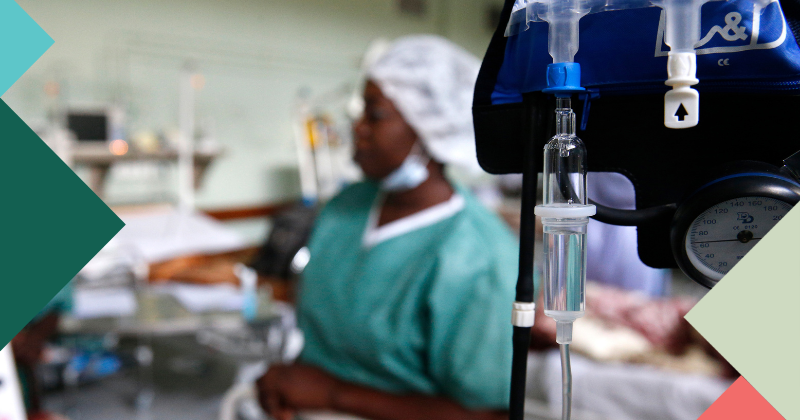The COVID-19 response highlighted failures in the global health system. However, it also contributed to a renewed focus on competition for health financing and changes in transition models for key Global Health Initiatives (GHIs).
The Future of Global Health Initiatives process took place within this window of opportunity, capitalising on a renewed focus on health financing in Low- and Middle-Income Countries (LMICs) by global actors.
How to optimise global health initiatives
Operating between March 2022 and December 2023, the process aimed for three core outcomes:
- GHIs are more efficient, effective and equitable in complementing and strengthening health system capacities and delivering health impacts.
- Financing streams across GHIs – and between GHIs and the broader health architecture at national, regional and global levels – are better balanced and coordinated, with stronger mutual accountability for meeting current and future global health needs.
- GHIs incentivise increased and sustained domestic investments in health that are more efficiently, effectively and equitably allocated, implemented and accounted for to achieve Universal Health Coverage (UHC).
The Wellcome Trust commissioned Itad to undertake an independent evaluation of the Future of Global Health Initiatives process, from its inception through to the launch of the Lusaka Agenda at the end of 2023.
Our evaluation aimed to assess the FGHI process, including its successes and challenges, and support learning and reflection for the wider global health community.
About the FGHI
The FGHI brought together global, national and regional stakeholders in a time-bound process to reflect on how global health initiatives can better support national health priorities and progress towards UHC.
During the FGHI process, stakeholders attended a series of consultative meetings, with some having the opportunity to join the Steering Group (SG) and Task Teams. The Wellcome Trust also commissioned a research consortium to undertake background analysis.
The process culminated in the publication of the Lusaka Agenda in December 2023, in which the conclusions of the process were summarised by the co-chairs. Stakeholders further identified near-term priorities, and next steps to catalyse short-term action.
Our role
Our evaluation examined the effectiveness of the working methods and tactics employed and evaluated the extent to which planned objectives were achieved in an equitable way.
It provides a record of what happened, and the successes and challenges encountered, to support learning and reflection by the global health community and to inform future collaborative efforts.
Through systematic collation and analysis of divergent views, the evaluation hopes to facilitate an understanding of whether and how the FGHI process contributed to meaningful change in the way domestic and international resources support country primary health care (PHC), health systems and UHC needs.
The evaluation covers two phases: the conception/initiation of FGHI (March 2022 – Sept 2022); and the core FGHI process (Sept 2022 – Dec 2023).
Methods and approaches
The evaluation team gathered and triangulated data across multiple sources. We interviewed 43 key informants from across 13 stakeholder groups involved in FGHI, reviewed 134 documents, and received 45 responses to an online feedback survey.
Outputs and impact
In the context of US withdrawal from the international aid system and further cuts to the UK aid programme, the report produces timely lessons learned including the need to:
- prioritise the reform of the global health ecosystem
- establish inclusive and transparent governance structures
- undertake sophisticated, multi-layered political economy analysis of GHI Boards
- capitalise on windows of opportunity to address fundamental issues in sustainable health financing
To learn more about the evaluation findings, you can read the full report here.


